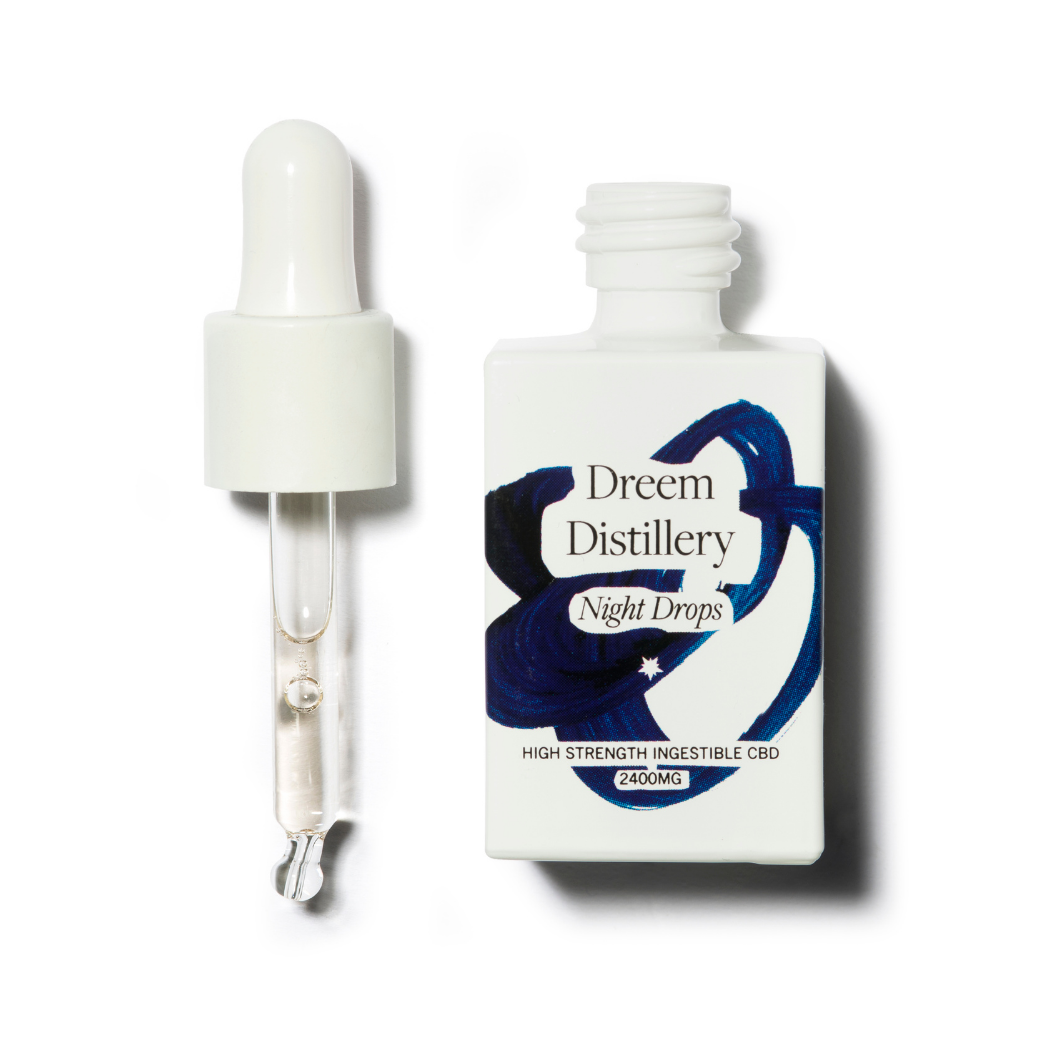Article Image
Beat Menopause Fatigue: Natural Solutions for More Energy
Dreem Distillery helps you beat menopause fatigue: natural solutions for more energy
Our bath and body products are the ultimate way to sleep, rest and recover and help to beat menopause fatigue. By calming the nervous system, this allows the body to be in rest and repair mode which supports the body into a restful sleep pattern and therefore improved energy levels. Never has been self-care been so important that during the perimenopause and menopause.
Are you struggling with menopause fatigue and searching for natural ways to boost your energy levels? Look no further! In this blog post, we’ll explore a comprehensive five-step plan to help you combat menopause fatigue and reclaim your vitality. Get ready to learn about the causes of menopause fatigue, effective strategies to manage sleep disruptions, ways to boost your energy levels naturally, dietary changes and supplements, and hormone therapy and alternative treatments. Let’s dive in!
Short Summary
- Understand the causes of menopause fatigue to identify effective remedies and improve quality of life.
- Utilize dietary supplements, physical activity, relaxation techniques and hormone therapy for managing symptoms associated with menopause.
- Consult a healthcare professional before beginning any supplement regimen to manage fatigue and boost energy levels naturally.
Understanding Menopause Fatigue

Menopause fatigue is a common struggle among middle-aged postmenopausal women, often being one of the menopausal symptoms. It primarily results from hormonal fluctuations and sleep disruptions associated with the menopause transition. Additionally, other factors like medical conditions, medications, and lifestyle factors can contribute to chronic fatigue. So, why is it crucial to understand the causes of menopause fatigue? By understanding the origins of this exhausting symptom, we can find efficient remedies to elevate our energy levels and improve our daily lives.
Apart from hormonal changes and sleep disruptions, other menopause-related symptoms like hot flashes and night sweats can exacerbate fatigue. To effectively beat fatigue, we need to address these causes by:
- Managing sleep disruptions
- Increasing energy levels naturally
- Altering dietary habits
- Taking supplements
- Exploring hormone therapy and alternative treatments.
Managing Sleep Disruptions

Sleep disruptions, including sleep apnea, are directly correlated with menopause fatigue, as poor sleep quality can contribute to chronic fatigue. Stress also influences sleep during menopause, adding to the overall exhaustion.
By managing sleep disruptions, such as night sweats and hot flashes, we can improve sleep quality and reduce fatigue. Let’s explore the impact of night sweats and solutions for hot flashes to ensure a good night’s rest!
The Impact of Night Sweats
Night sweats, or intense hot flushes during sleep, are a result of decreasing hormone levels, specifically estrogen, which affects the body’s temperature control. Many women experience night sweats during menopause, which can interfere with sleep and lead to more fatigue. To improve sleep quality and reduce menopause fatigue, it’s essential to address these night sweats and restore balance to our body temperature.
Taking a dietary or herbal supplement may help alleviate this menopause symptom. Complementary and alternative medicine, such as acupuncture, can also be useful in alleviating night sweats and improving sleep quality. By managing night sweats, we can sleep better and feel more energized during the day.
Solutions for Hot Flashes
Hot flashes, similar to night sweats, are primarily caused by hormonal changes during menopause. As estrogen levels decrease, the body’s temperature regulation is affected, resulting in hot flashes. These hot flashes not only impede daily activities but can also disturb sleep, potentially contributing to chronic fatigue syndrome in menopausal women.
Finding solutions to manage hot flashes is crucial for improving sleep and energy levels. Some strategies include:
- Hormone therapy
- Physical activity
- Adherence to sleep hygiene principles
- Abstention from stimulants and alcohol
By effectively managing hot flashes, we can enjoy better sleep and reduced menopause fatigue.
Boosting Energy Levels Naturally

Boosting energy levels naturally during menopause is possible through regular physical activity and relaxation techniques, such as yoga and meditation. Let’s explore how physical activity and relaxation techniques can help us fight fatigue, reduce stress, and promote better sleep during menopause.
Physical activity can help reduce fatigue by increasing the body’s production of endorphins.
Physical Activity and Exercise
Engaging in regular physical activity can help improve energy levels, reduce stress, and promote better sleep during menopause. A 2015 study conducted on 74 postmenopausal women revealed that engaging in moderate-to-vigorous physical activity was associated with a feeling of increased energy. The results of the study were promising for this age group. Examples of beneficial physical activities for menopausal women include:
- Yoga
- Spin
- Swimming
- Brisk walking
Implementing a regular exercise routine can significantly enhance sleep quality and duration, particularly for women experiencing hot flashes and night sweats. By staying active, we can improve our mood and energy levels, making the menopausal transition more manageable.
Relaxation Techniques
Practicing relaxation techniques, such as yoga and meditation, can help reduce stress and anxiety, leading to improved energy levels and reduced menopause symptoms like fatigue. These techniques calm the mind and body, allowing us to better cope with the psychological changes and symptoms of menopause.
Incorporating relaxation techniques into our daily routine can also improve sleep quality and duration. Meditation, for instance, has been known to reduce stress and increase energy, resulting in increased energy levels and diminished menopause fatigue. By practicing relaxation techniques, we can better manage our stress levels and enjoy an overall sense of well-being during menopause.
Dietary Changes and Supplements

Making dietary changes and using supplements can help manage menopause fatigue. Including energy-boosting foods and avoiding stimulants can improve our overall well-being.
Let’s discuss the foods to include and avoid, as well as supplement recommendations to help us feel more energized during menopause.
Foods to Include and Avoid
Including nutrient-rich foods in our diet can help improve energy levels and reduce menopause fatigue. Consuming a balanced diet with an abundance of fruits, vegetables, whole grains, lean sources of protein, and low- or no-fat dairy products is essential for managing menopause fatigue. Additionally, reducing consumption of processed foods, sugar, and caffeine can contribute to the reduction of fatigue.
To ensure a good night’s sleep, it’s crucial to avoid stimulants like caffeine, alcohol, and nicotine. Eating smaller portions more often is a great way to maintain energy levels during the day. It helps to spread out the nutrients and keeps you energized! By making these dietary changes, we can enjoy improved energy levels and reduced menopause fatigue.
Supplement Recommendations
Supplements that can help manage menopause fatigue and improve overall energy levels include:
- Vitamin D
- Iron
- B vitamins
- Magnesium
- Herbal remedies
Vitamin B12, iron, and magnesium can help increase energy levels, while omega-3 fatty acids, probiotics, and adaptogenic herbs may be beneficial in reducing fatigue.
Herbal remedies like black cohosh and lavender have been known to have positive effects on menopausal fatigue. Additionally, PEA, an endocannabinoid-like compound, can bolster sleep hygiene and improve energy levels. Soy lecithin, available as an over-the-counter tablet, can also increase vigor and reduce blood pressure.
Be sure to consult with a healthcare professional before starting any new supplement regimen.
Hormone Therapy and Alternative Treatments
Hormone therapy and alternative treatments can be considered for managing menopause fatigue. These treatments may include:
- Hormone therapy
- Certain antidepressants
- Blood pressure medications
- Complementary and alternative medicine, such as acupuncture
However, it’s essential to discuss these options with a healthcare professional to determine the best course of action for your individual needs.
Hormone therapy may be beneficial in alleviating symptoms of menopause, but may also increase the likelihood of certain health conditions. It’s crucial to weigh the risks and benefits of hormone therapy with your healthcare provider. By exploring various treatment options, you can find the most effective solution for managing menopause fatigue and improving your overall quality of life.
Summary
In conclusion, managing menopause fatigue is possible through a combination of understanding its causes, managing sleep disruptions, boosting energy levels naturally, making dietary changes and using supplements, and considering hormone therapy and alternative treatments. By implementing these strategies, you can take control of your menopause journey and enjoy a more vibrant, energetic life. Remember, you’re not alone in this journey, and with the right tools and support, you can successfully overcome menopause fatigue and thrive during this significant life transition.
Frequently Asked Questions
What does menopause fatigue feel like?
Menopause fatigue feels like a wave of exhaustion that can hit suddenly, leaving women feeling drowsy and unable to focus properly.
How long does menopause fatigue last?
Menopausal fatigue can last for up to 14 years during the menopausal transition, although most cases may not exceed 8 years.
Hot flushes and night sweats tend to persist for 1-2 years after menopause.
What is the best vitamin for menopause fatigue?
Vitamins B, B12, C, and D are the key vitamins for combating menopause fatigue and keeping energy levels balanced.
How can I improve my sleep quality during menopause?
Managing night sweats and hot flashes, practicing sleep hygiene, and reducing stress can help improve your sleep quality during menopause.
Making lifestyle changes such as exercising regularly, eating a balanced diet, and avoiding caffeine and alcohol can also help you get better sleep.
Talking to your doctor about hormone replacement therapy or other medications may also be helpful.
What are some effective relaxation techniques for reducing menopause fatigue?
Yoga and meditation are effective relaxation techniques that can help reduce menopause fatigue by reducing stress and increasing energy.
These techniques can be used in combination with other lifestyle changes, such as getting enough sleep and eating a balanced diet, to help manage fatigue.
It is important to find a practice that works.
Shop our edit of bath and products here.






